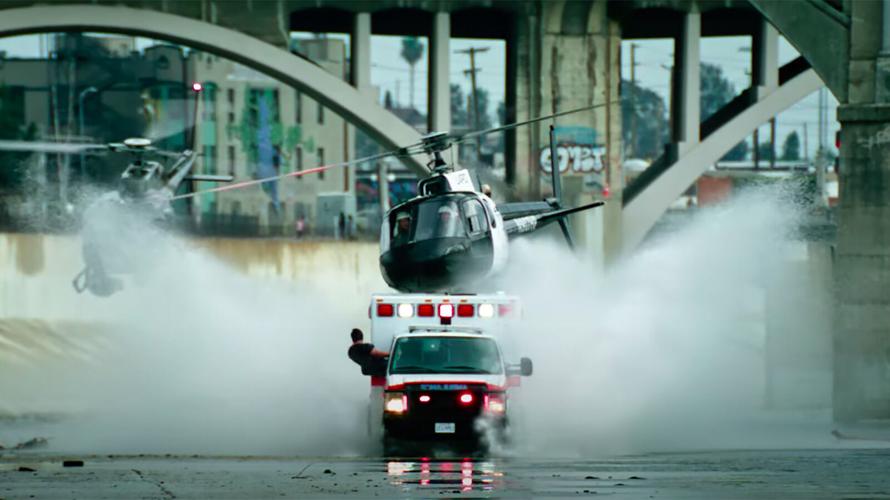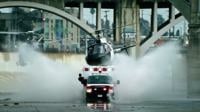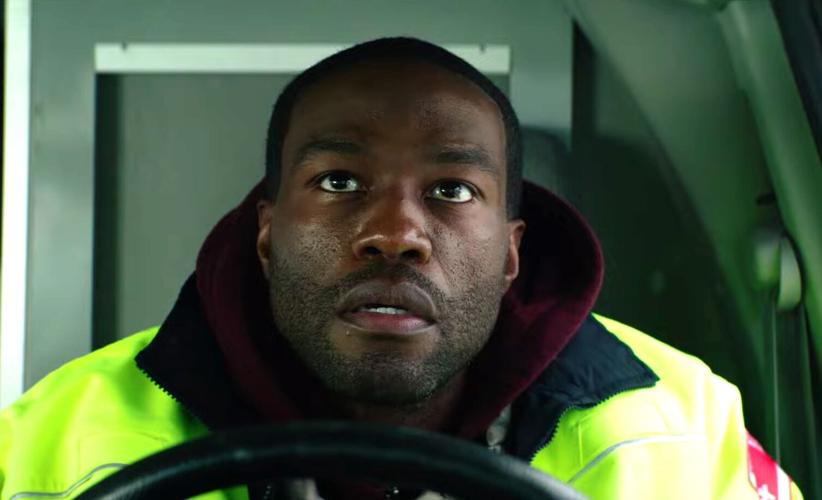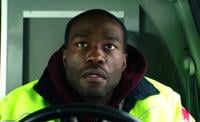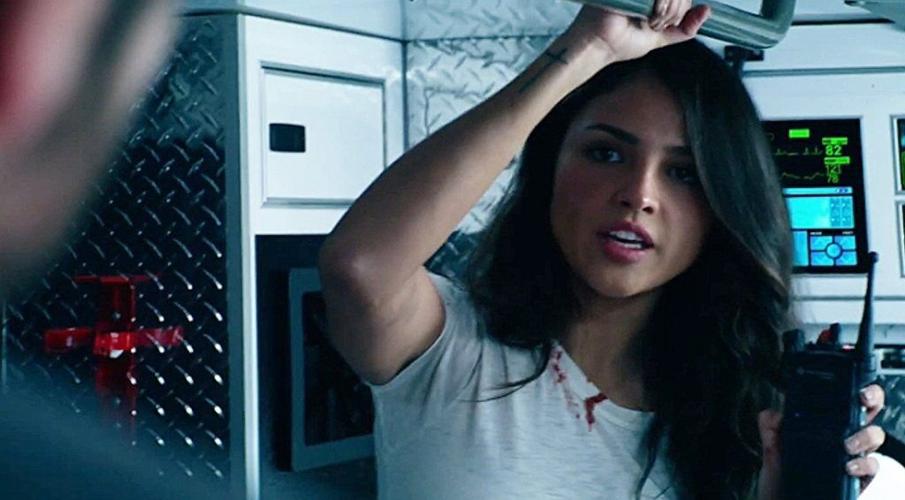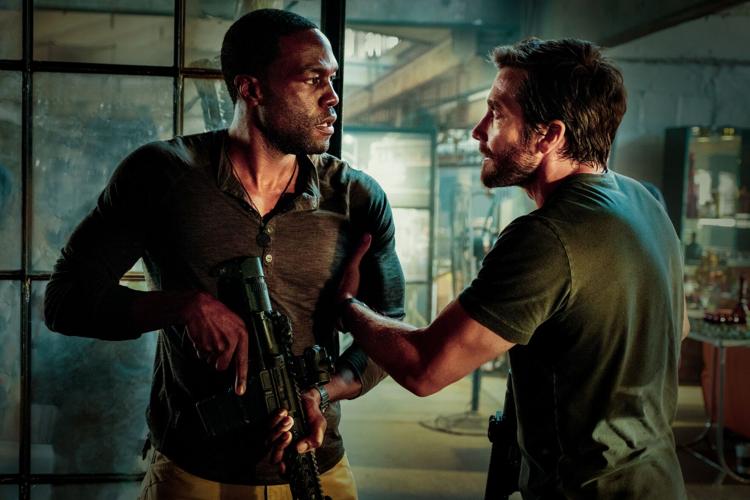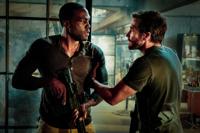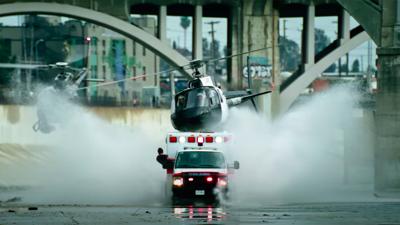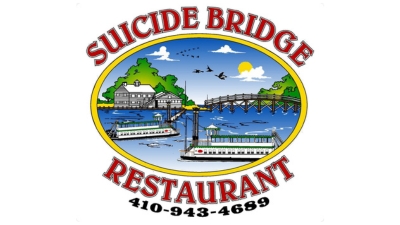Editor’s note: The views and opinions expressed in this review are solely those of Marlon Wallace and do not necessarily reflect the views and opinions of WBOC.
Based on the Danish film Ambulacen (2005), this film over-complicates things and adds situations to the narrative that are interesting but also frustrating. The original film, directed and co-written by Laurits Munch-Petersen, was about two brothers who rob a bank in order to pay for their mother’s medical bills. Things go wrong and they steal an ambulance but there’s a paramedic and heart patient in the back. The heart patient will die unless the bank robbers go to a hospital, so there’s a moral dilemma. Either the brothers save the patient or their mother. The two brothers essentially debate that point, struggling over a kind of trolley problem.
This film, written by Chris Fedak (Prodigal Son and Chuck), and directed by Michael Bay (Transformers and Armageddon), washes that debate and that dilemma away. It perhaps tries to replace those things with others, but it fails to spotlight those things, as the film is more about Bay zooming and whizzing through the streets of Los Angeles in a high-octane action flick. As reported, Bay utilizes a flying camera as part of a series of drones by specialized pilots. This film feels like him indulging in those drones too much, highlighting the City of Angels to an overwhelming degree.

Yahya Abdul-Mateen II (The Matrix Resurrections and Aquaman) stars as William James Sharp or Will, a former Marine who is looking for a civilian job. He has a newborn baby, which is expensive enough, but his wife apparently needs medical care. He starts out trying to get his health insurance to cover that medical care, but the insurance company is no help. The cost is around a quarter of a million dollars. He decides to go to his brother who is a career criminal or a businessman that does dirty dealings.
The film doesn’t really elaborate why Will’s wife needs that medical care. Will acts as though there is some kind of urgency and that Will’s wife needs the medical care or else she’ll die. Unfortunately, Bay’s film never underlines this fact. Every time we see Will’s wife, she appears to be perfectly fine. She doesn’t look sick or infirm. She has no symptoms and she doesn’t seem to be in danger at all. Because we don’t see that danger or feel it, it becomes difficult for us to understand or buy why Will would do the things that he does or go along with the things that he does. I didn’t buy his motivation basically.
Jake Gyllenhaal (Spider-Man: Far From Home and The Day After Tomorrow) co-stars as Danny Sharp, the brother to Will. He has a business where there are a lot of vintage cars. It’s not clear if he’s a collector, if he sells them or repairs them. It’s not clear what he does. He seems to be mainly a career criminal. It’s reported later that he’s on the radar of the FBI, indicating that he’s on the FBI’s wanted list. This would make his business with all the cars a dubious one. His main concern is engaging in heists and in this case a bank robbery.
In the Danish film, the two brothers steal an ambulance that happens to have a heart patient who is dying from an illness that has nothing to do with the brothers. Here, Danny and Will steal an ambulance, but the patient in the back is a police officer named Zach, played by Jackson James White, whom Will has shot. Given the recent cases in the Black Lives Matter movement, including that of George Floyd, it seems as if this plot point isn’t insignificant. Danny insists that they take the injured police officer hostage because that would allow them to go anywhere and be protected because the police officer’s life is more valuable than any one else’s. The film reinforces this argument in one critical scene.

Eiza González (Godzilla vs. Kong and Hobbs & Shaw) also co-stars as Camille Thompson, a paramedic or EMT who is called to help the injured police officer and she becomes another hostage for Danny and Will. The film proves that the police officer’s life is more valuable or the only thing of value in the emergency vehicle when we see the police officers that are pursuing Danny and Will not do anything that might damage the vehicle and kill Zach. Yet, when they think Zach is dead, the police don’t hesitate to begin firing on the vehicle, even though Camille is still alive and could be killed by their actions.
Outside of that one scene when the other police officers think Zach is dead, the argument about this film being Blue Lives Matter is only referenced and only slightly reinforced in one other moment. Mostly, this film undermines the idea of Blue Lives Matter. The chase through the streets of Los Angeles, for example, result in a lot of cop cars being destroyed. It’s hard to believe that the officers in those cop cars aren’t subsequently killed. Therefore, this argument about the value of police life is a bit of a contradiction.

The chase scenes could be a commentary on the aggressive and often excessive actions in which the police can partake. I’m not sure if Bay is political or makes overt political statements. However, it’s difficult to think of Bay doing anything that substantially would be against aggression or excess. His films, particularly this one, contradict that message over and over.
Finally, over the years Michael Bay has been noted for having films with a lot of homophobia or homophobic jokes. For his 15th feature here, he has what could be his first openly gay male character who isn’t the subject of ridicule. That character is Anson Clark, a FBI agent, played by Keir O’Donnell (Paul Blart: Mall Cop and Wedding Crashers). Bay even takes the time to pause the main narrative to show Anson with his husband and even have a same-sex kiss between the two men. It’s an appreciated moment, if totally unnecessary to the plot. Anson apparently was friends or classmates with Danny, which suggests there might have been a relationship between Danny and Anson in more than platonic ways, but that’s simply inferring more than Bay presents. Otherwise, the character of Anson feels like an apology rather than a substantive character.
Rated R for intense violence, bloody images and language.
Running Time: 2 hrs. and 16 mins.
In theaters and VOD.

